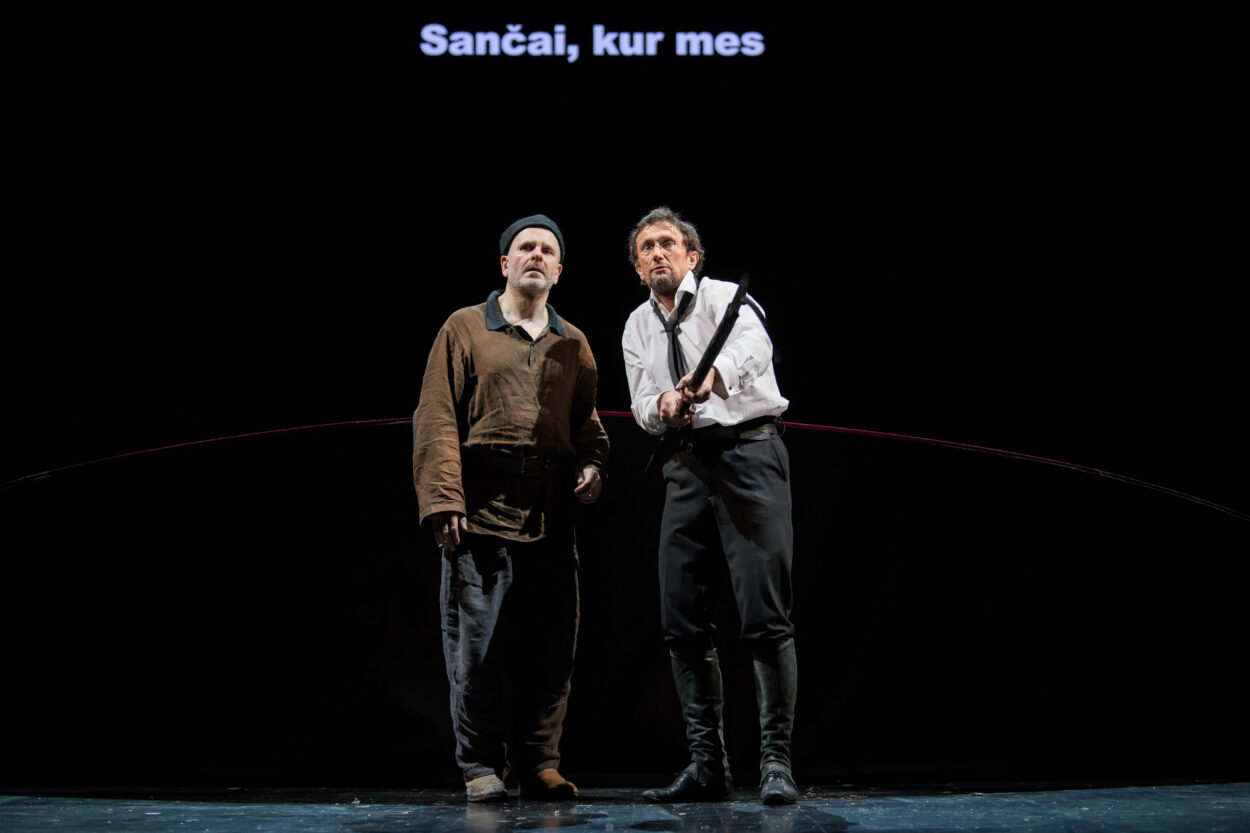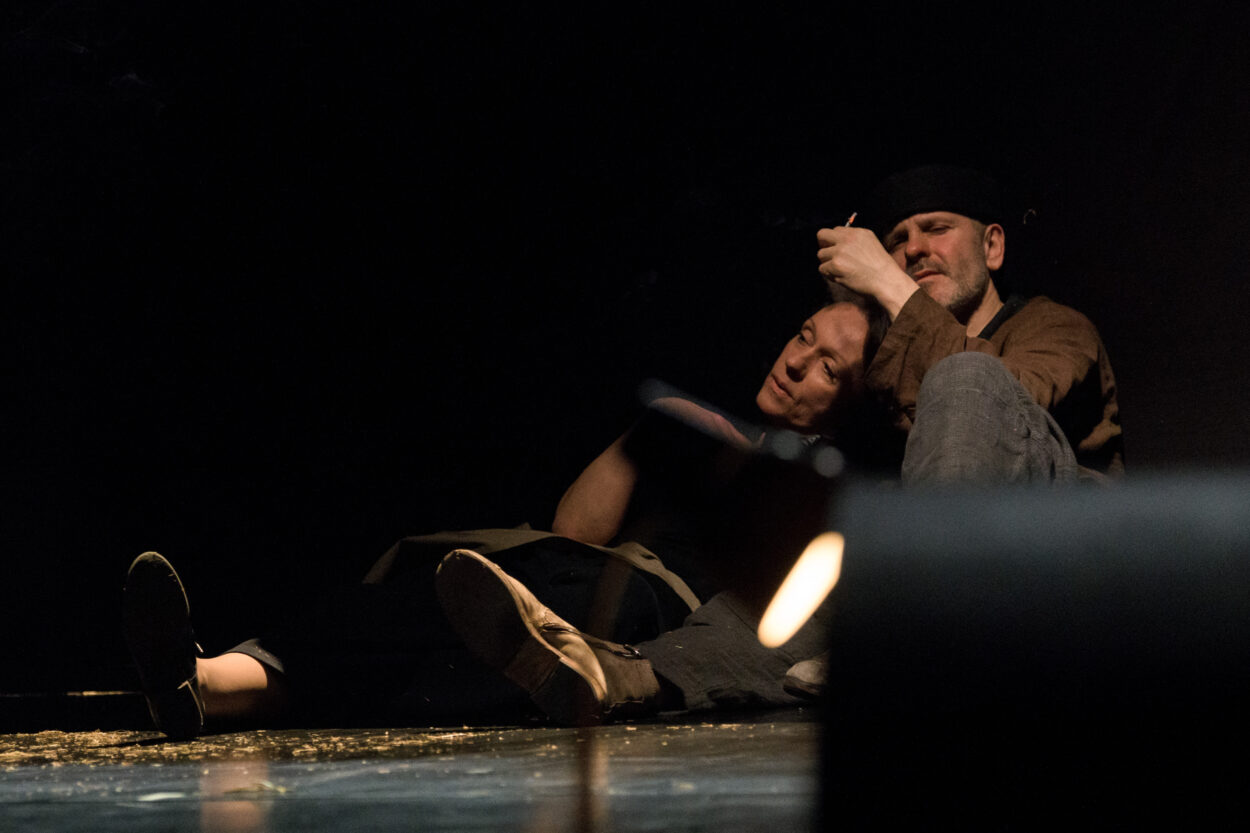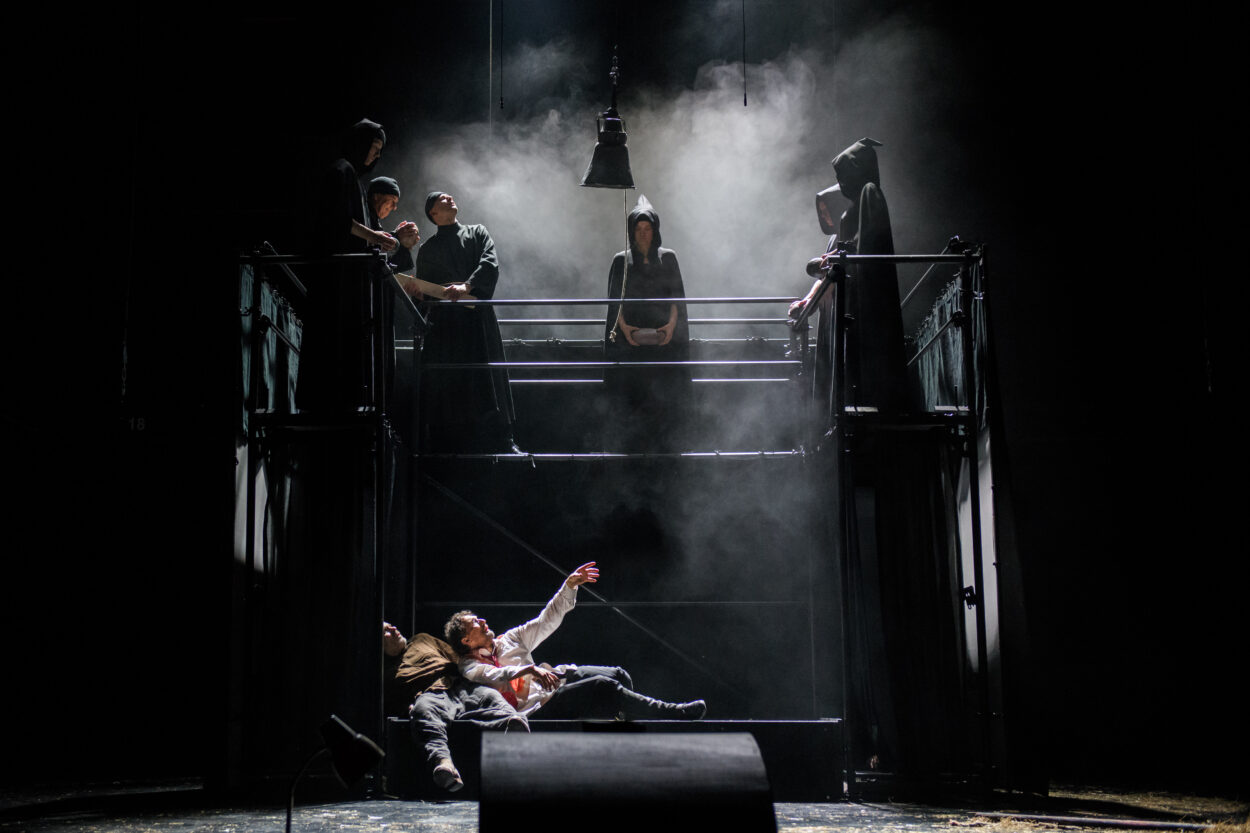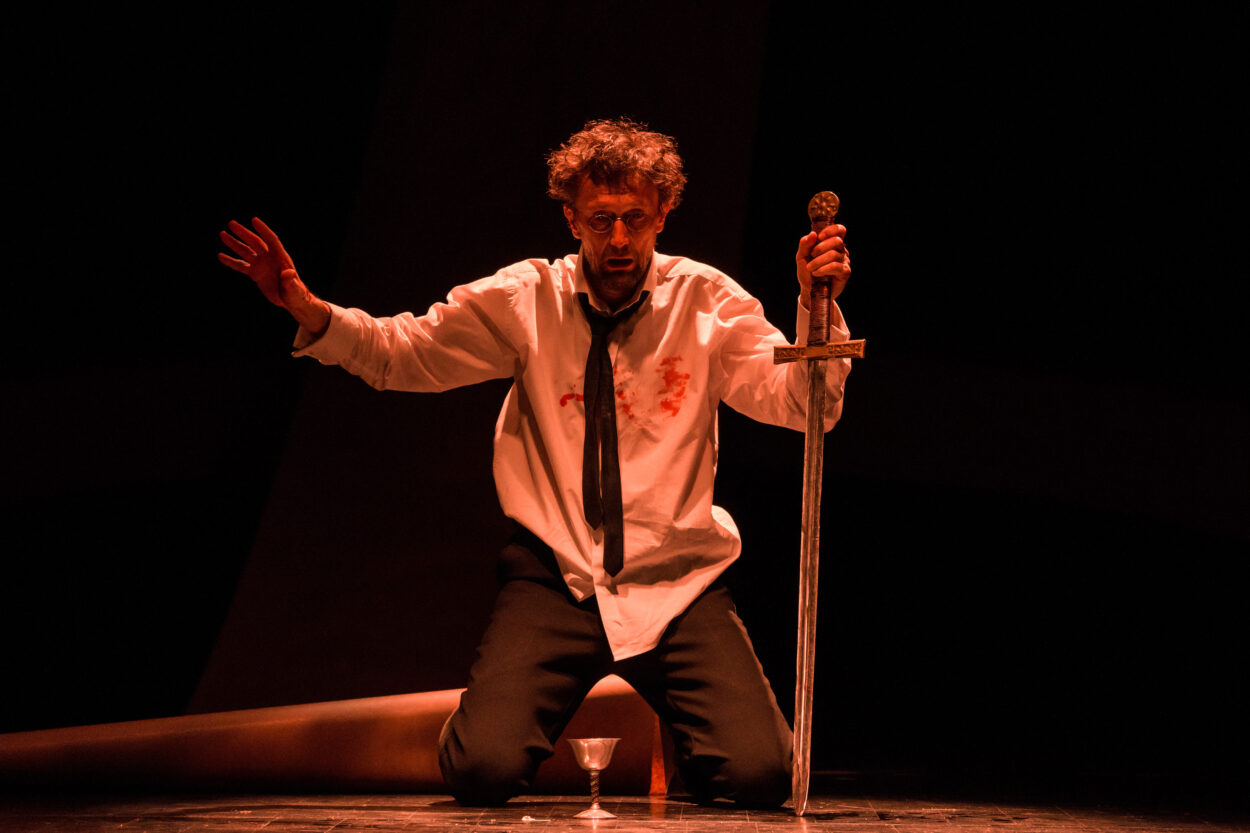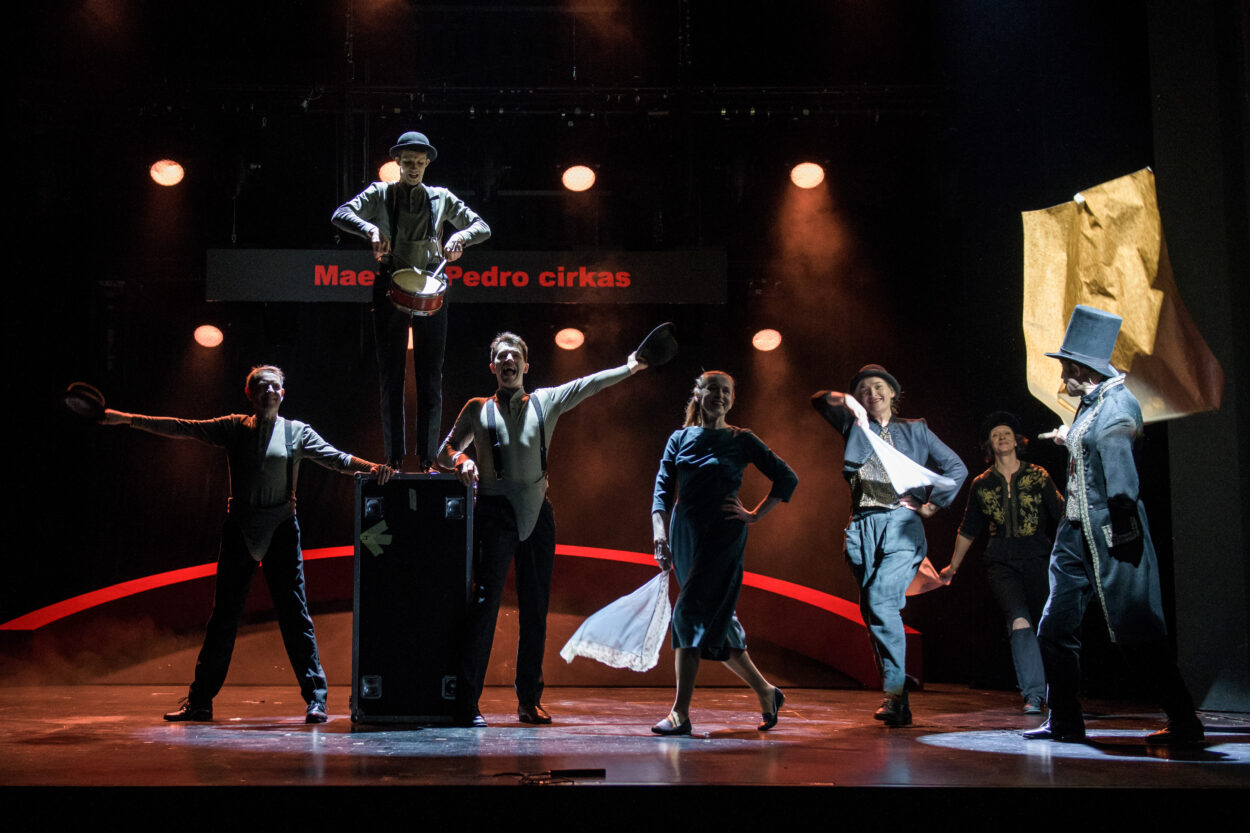Photos by Laura Vansevičienė
Director
Adomas Juška
Performers
Vaidas Vilius
Adaptation
Mindaugas Nastaravičius
Adomas Juška
Stage designer
Marius Nekrošius
Costume designer
Nadežda Gultiajeva
Lighting designers
Simas Sirutavičius
Adomas Juška
Video projections
Kornelijus Jaroševičius
Composer
Andrius Šiurys
Assistant director
Lukas Petrauskas
Duration
4:00
Premier
2021-05-16
Photos by Laura Vansevičienė
Tickets
Tickets
12 november 2025, 17:30, Main Stage
Tickets
Tickets
6 december 2025, 16:00, Main Stage
